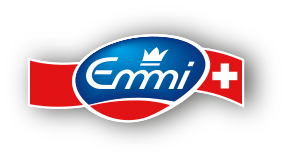29. Risk management and internal controls
The Board of Directors of Emmi AG has the ultimate responsibility for risk management, while implementation is delegated to Group Management. Irrespective of the type of risk, there is a generally applicable risk management process. As part of a formal process, significant business risks are assessed in workshops and individual interviews according to the extent of the potential damage and their likelihood of occurrence. This process is divided into two sub-processes: risk analysis and definition of measures. The first sub-process includes risk identification, assessment and classification. Risks are classified according to whether they are strategic, operational, financial or compliance-related. The second sub-process, definition of measures, covers how to deal with risks and the creation of a catalogue of measures per risk, as well as risk reporting.
The Board of Directors of Emmi AG approved the risk assessment in the year under review and monitors implementation of the measures defined by Group Management. No exceptional risks that went beyond normal limits were identified during the assessment. The process is repeated annually. The following risks, among others, were identified as significant risks to the Emmi Group:
- Milk price difference internationally: The milk price difference between Switzerland and other countries continues to have a negative impact on the sales of domestically produced products both in Switzerland, as the volume of imported milk products increases, and abroad. Although full liberalization of the Swiss milk market remains a long-term risk, this is absorbed through targeted and sustainable growth abroad. Any risks related to the international growth of the Emmi Group are minimized by strictly focusing on the strategy and its implementation.
- Currency risk: Although currency movements are currently less volatile than in previous years, in particular uncertainties related to Brexit and the corresponding impact on the British pound continue to be a risk for the Group. We aim to achieve natural hedges with purchases in foreign currencies. Furthermore, in-line with the Emmi strategy, expenditure and production in foreign currency zones are being increased through capital expenditures and acquisitions.
- Price pressure: National and international product tenders, as well as a potentially successful market launch of milk alternatives, threaten to result in price erosion, which could lead to a loss of margin mainly for generic products. If the prices of Emmi products remain stable in foreign currency, this may lead to a margin loss. If prices increase, market shares might be lost. However, the successfully established Emmi brands offer long-term value creation potential.
- Trade agreements: The drafting of trade agreements in countries in which Emmi operates presents both opportunities and risks for the company. Switzerland is currently engaged in various talks aimed at negotiating new trade agreements or renegotiating existing ones, but progress is slow. As a result, the Swiss dairy industry is increasingly lagging behind its competitors – especially those from the European Union – on the international market in terms of market access conditions. Negotiations that are unfavourable for Emmi could potentially also lead to heavy import pressure in Switzerland. A suspension of the bilateral agreements with the European Union would make it harder for Swiss export products to gain access to the market (e.g. due to the reintroduction of customs duties on cheese), posing a considerable risk. Meanwhile, the future structure of trade agreements between the European Union and the UK could also have significant ramifications for Emmi.
The Emmi Group is exposed to various financial risks through its business activities, including credit, liquidity and other market risks. Credit risks are managed by means of continual monitoring of day-to-day business and appropriate risk assessment when closing a transaction. Liquidity risk is managed by means of central cash management, which ensures that the planned liquidity requirement is covered by corresponding financing agreements. Other market risks, such as currency and interest rate risks, are partially hedged using derivative instruments. The non-hedged part is consciously borne as a risk. The currencies which are of particular relevance to the Emmi Group are the Euro, the US dollar and the British pound.
To ensure that the consolidated financial statements comply with the applicable accounting standards and are reported accurately, the Emmi Group has set up effective internal control and management systems, which are reviewed regularly. The accounting and valuation include estimates and assumptions regarding the future. These are based on the knowledge possessed by the respective employees and are regularly examined with a critical eye. Where a financial position includes a major valuation uncertainty that could lead to a significant change in the carrying amount, this uncertainty is disclosed accordingly in the Notes. However, no risks that could lead to a significant correction to the company’s assets, financial position or results of operations as reported in the annual accounts were identified as at the balance sheet date.
